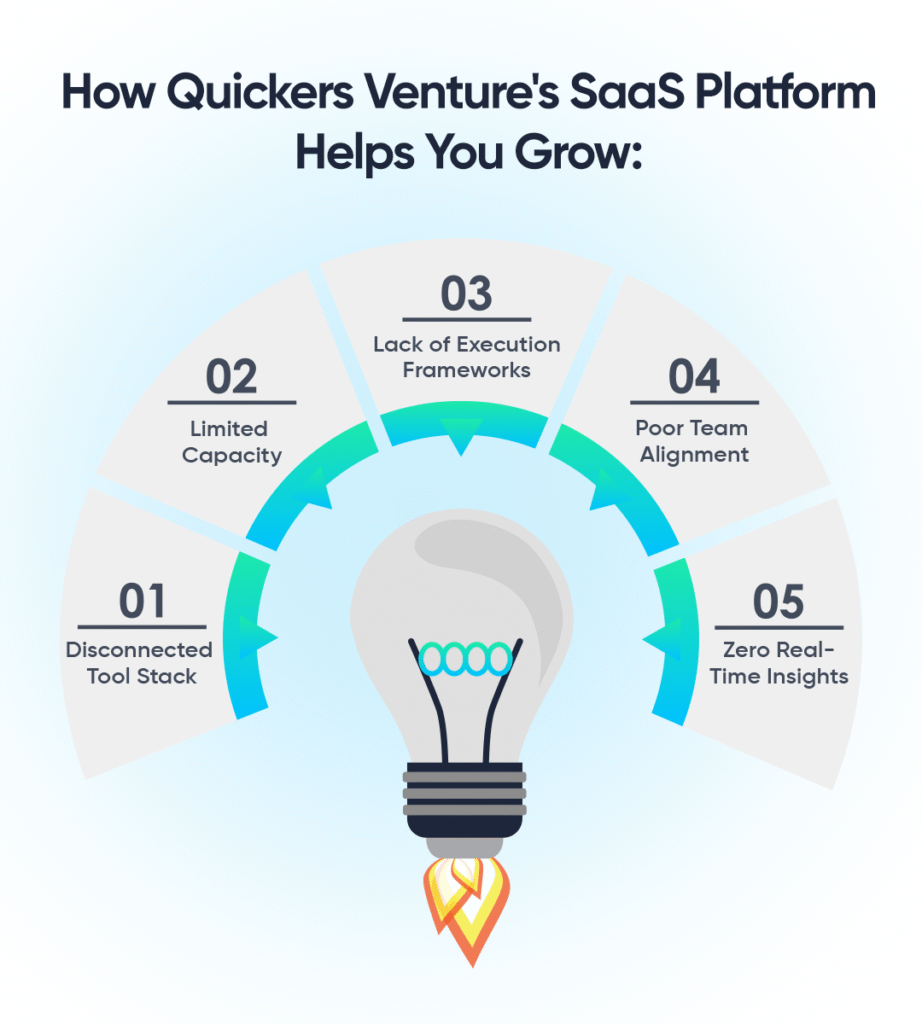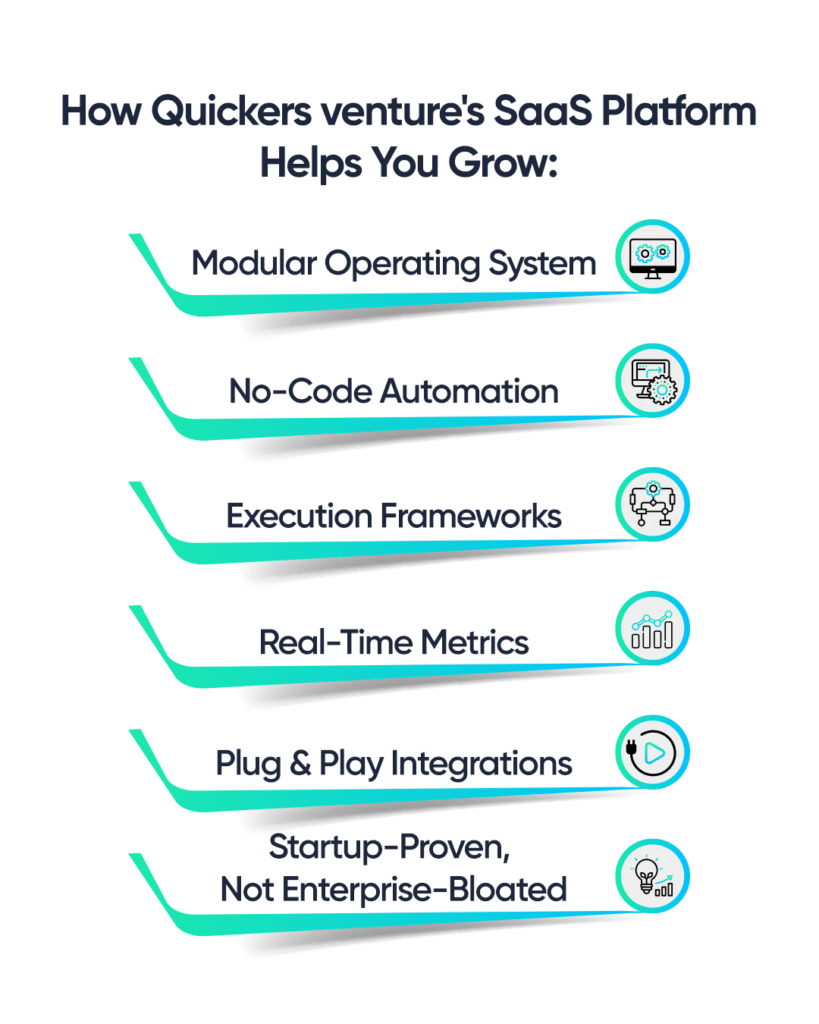Launching a startup in today’s digital landscape is easier than ever. With open-source tools, no-code solutions, and global access to talent, anyone can turn an idea into a product. But turning that product into a scalable business? That’s where most founders hit a wall. Scaling is no longer just about hiring more people; it’s about building systems that can grow without breaking. This is where a scalable SaaS platform becomes helpful and mission-critical.
The Growing Pains of Modern Startups
No matter the niche, every startup experiences growing pains. Early momentum often gives way to operational chaos. Let’s break down some of the founders’ most common obstacles and how a scalable SaaS platform can help solve them.
1. Disconnected Tool Stack
Early-stage teams often rely on a patchwork of tools like Trello, Google Sheets, Airtable, Notion, and multiple Chrome extensions. While these tools are powerful in isolation, they rarely work well together. Information gets siloed, processes break, and team members waste valuable hours switching between tabs.
A scalable SaaS platform consolidates these fragmented workflows into a unified workspace, eliminating inefficiencies and centralizing execution.
2. Limited Capacity
Startup teams are small. Founders juggle five roles at once, and hiring is often out of budget. Without smart automation and streamlined task management, burnout is inevitable.
By leveraging a scalable SaaS platform, teams can automate repetitive tasks, reduce manual work, and get more done without expanding headcount.
3. Lack of Execution Frameworks
You may know what needs to be done, such as launching campaigns, hiring talent, and managing pipelines, but it’s hard to execute consistently without structure. Most startups lack repeatable playbooks that ensure everyone is on the same page.
The right scalable SaaS platform has built-in execution frameworks, such as go-to-market strategies, hiring checklists, fundraising flows, and more, making it easier to move fast and stay organized.
4. Poor Team Alignment
As startups scale, departments often drift apart. Product teams often build one thing, sales sells another, and marketing says something entirely different. This misalignment can be confusing both internally and externally.
A centralized, scalable SaaS platform offers shared dashboards, communication tools, and visibility into key workflows, keeping teams aligned and focused.
5. No Real-Time Insights
Many startups operate without real-time analytics. Without knowing what’s working (and what’s not), decision-making becomes reactive instead of strategic. This can slow growth or cause you to double down on ineffective efforts.
A modern, scalable SaaS platform integrates analytics directly into operations, allowing founders to track KPIs, monitor performance, and pivot confidently.
According to a Gartner report, by 2026, 75% of organizations will rely solely on SaaS systems to overcome these exact challenges.

Startup Success Stories: Scaling With SaaS
Let’s look at how real startups have used scalable SaaS platforms to unlock growth.
Outreach – Sales at Scale
Outreach helps sales teams automate repetitive tasks and close deals faster. Combining automation with AI-driven insights, Outreach clients have seen up to 30% productivity increases. This proves how a focused, scalable SaaS platform can transform sales execution.
SalesLoft – Personalized Sales Automation
SalesLoft empowers small teams to scale personalized sales outreach. Their sales engagement platform streamlines lead prioritization, automates workflows, and enhances customer communication. Forbes reported that startups using SalesLoft have accelerated deal cycles while maintaining the human touch, thanks to a smart, scalable SaaS platform.
Stripo – Design Without Devs
Stripo allows non-designers to create professional emails without writing code. It began as a simple tool and scaled into a platform used in over 180 countries. Its success illustrates how a scalable SaaS platform built with a product-led approach can reach global markets without traditional marketing teams.
PandaDoc – Faster Closures
Startups lose time in manual proposal processes and document approvals. PandaDoc fixes this with a streamlined document workflow system. As reported in their press release, teams using PandaDoc close deals 50% faster, another win for the power of automation via a scalable SaaS platform.
Comparison Table: Scalable SaaS Platform vs. Traditional Tools
| Feature | Scalable SaaS Platform | Traditional Tools |
| Centralized Workflow | ✅ Yes | ❌ No |
| Real-Time Collaboration | ✅ Yes | ⚠️ Limited |
| Built-In Frameworks | ✅ Yes | ❌ No |
| Scales with Team Size | ✅ Seamlessly | ⚠️ Difficult |
| Requires Developer Support | ❌ No | ✅ Often Yes |
| Cost-Effective | ✅ Long-term | ⚠️ Varies |
| Integration Support | ✅ High | ⚠️ Limited |
What Scalable SaaS Platforms Offer
So, what exactly does a scalable SaaS platform provide that traditional tools don’t?
Centralized Workflows – All your operations in one dashboard.
No-Code Automation – Trigger actions without technical skills.
Team Alignment – Real-time visibility for all stakeholders.
Built-in Frameworks – Execute proven strategies faster.
Live Metrics – Make data-driven decisions, instantly.
Flexible Integrations – Seamlessly plug into existing tools.
Instead of duct-taping solutions together, startups can operate on a single scalable SaaS platform built for clarity and growth.
Common Mistakes to Avoid When Scaling Without SaaS
Mistake #1: Relying solely on manual processes
Mistake #2: Scaling before standardizing operations
Mistake #3: Using too many disconnected tools
Mistake #4: Hiring before automating
Mistake #5: Not tracking metrics in real time
Each of these mistakes can be prevented with a scalable SaaS platform.
How Quickers Venture Powers Smarter Startups
At Quickers Venture, we know what startup chaos feels like. We’ve lived the late nights, the failed launches, and the misaligned teams. That’s why we built a scalable SaaS platform for startup operators, not just developers or enterprise teams.
Here’s how Quickers Venture transforms your growth journey:
Modular Operating System
Everything is customizable to your startup stage, from sales pipelines to task boards.Execution Frameworks
Pre-built playbooks for go-to-market, hiring, fundraising, and product launches are ready to deploy.No-Code Automation
Automate follow-ups, onboarding, task assignments, and status updates; no devs are needed.Real-Time Metrics
Get a clear picture of your operations, growth, and product KPIs all in one place.Plug & Play Integrations
Use Google, Notion, Slack, and Zapier seamlessly with our platform.Lightweight & Agile
We’re not bloated enterprise software. We’re fast, focused, and built for early-stage success.

Final Thought
The difference between a startup that scales and stalls isn’t always the idea; it’s often the system. A scalable SaaS platform provides the foundation for moving fast, staying lean, and growing sustainably.
Platforms like Outreach, PandaDoc, and Stripo have proven that operational excellence drives exponential results. With Quickers Venture, you’re not just adopting software; you’re building a startup growth engine designed by people who’ve scaled, failed, and succeeded.
FAQs
Q: Is this for non-technical founders?
Absolutely. Our scalable SaaS platform is designed so that anyone can execute without needing code.
Q: Will this replace my existing tools?
You can only integrate your favorite tools or streamline them into one workspace if you want to.
Q: What startup stage is this best for?
Whether you’re pre-revenue, bootstrapped, or post-Series A, a scalable SaaS platform adapts to your team’s needs.

